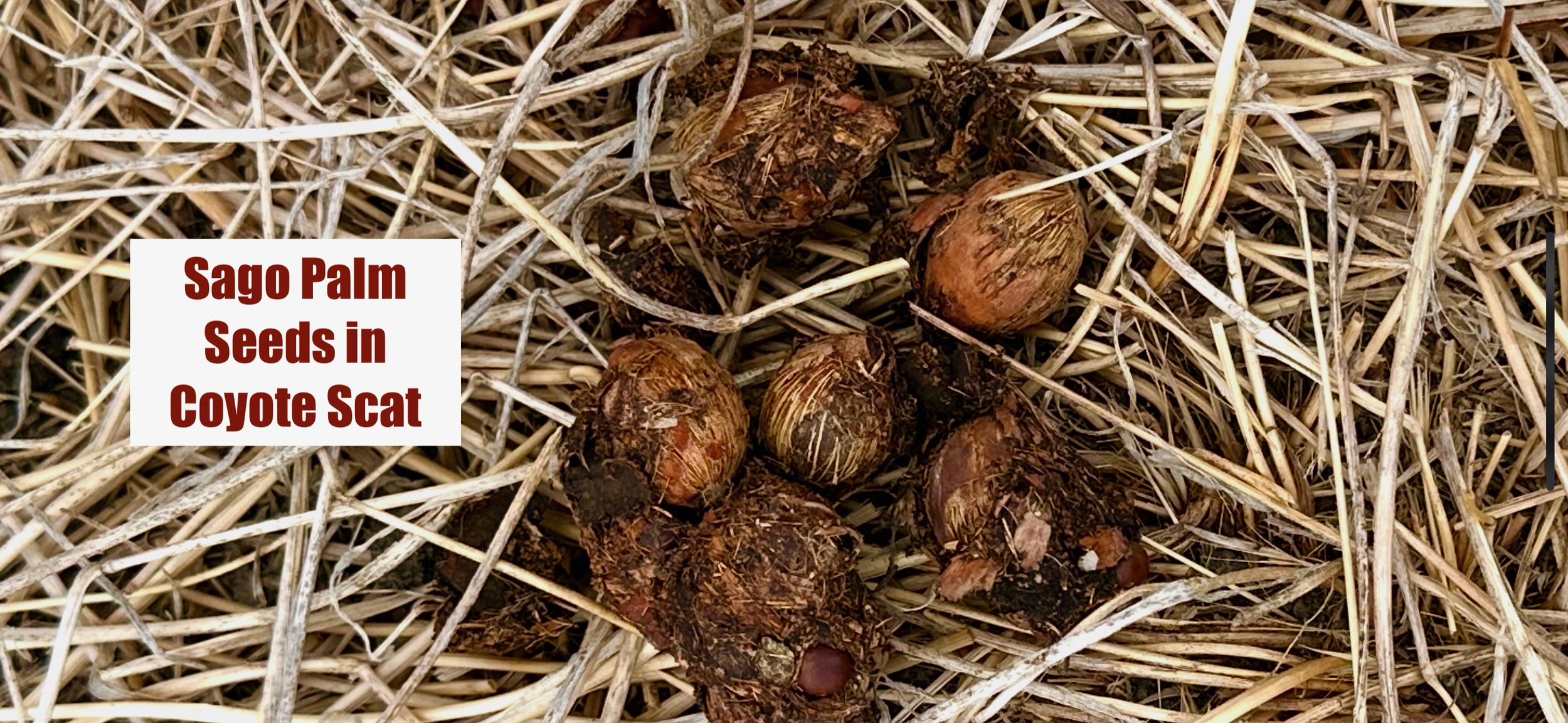Sago Palm: Highly Toxic Plant #1
One of the most deadly of all plants found at your local nursery and big box stores like Home Depot
Seeds from a Sago Palm found in coyote scat. These are highly toxic to animals.
A friend of mine that I know from AKC sporting dog competitions had a story to tell. His 6-year-old dog had just died after eating coyote scat. The dog was in the prime of his life, but for whatever reason, when the dog stumbled onto the scat of a coyote, the dog decided to eat it. Five hours later the dog was dead.
The photo I’m posting is of that same scat that the dog ate. Looks harmless enough, if you’re a dog. But Sago seeds are highly toxic and the chance of a dog surviving if it eats the seeds is less than 50 percent, according to some leading Veterinarians. I suspect that the coyote that left its scat also died from the toxins of Cycas revoluta, or Sago Palm. The most important thing to note is that the Sago Palm (actually not a true palm) is also poisonous to people young and old if ingested, or through an open puncture wound. These palms really have no business in any home with an animal, or small child. This is seriously the most toxic plant I’ve studied so far in my series on potential deadly plants.
The toxin from Sago Palms is Cycasin. It is a carcinogenic and neurotoxic glucoside. When metabolized (ingested), becomes methylazoxymethanol (MAM), a highly toxic compound. It causes severe liver damage. The symptoms of MAM are vomiting, diarrhea, weakness, seizures, and liver failure. See a Veterinarian immediately if you think your pet has ingested any part of a Sago Palm. Or, call the poison center immediately if a child has eaten any part of a Sago.
I would recommend digging out and removing a Sago Palm if you are concerned about its poisonous nature. Sago Palms are sold at all leading nurseries and stores like Lowes, Home Depot and others. As I learn more about Sago Palms I will continue to update this post.


